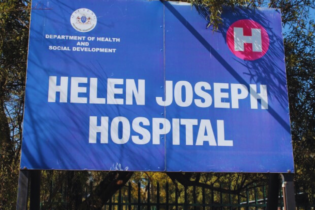Construction companies, including the sector’s top listed firms, found guilty of collusion and bid-rigging by the Competition Commission will be barred for up to 10 years from doing public sector work.
This could exclude Aveng, Group Five, Murray & Roberts (M&R), Wilson Bayly Holmes-Ovcon and Basil Read from the government’s R844.5 billion infrastructure expenditure programme, probably throwing the project into disarray. Ursula Ntsubane, the chief executive of the Construction Industry Development Board (CIDB), said once the commission pronounced the outcome of its investigation, the CIDB had an obligation in terms of its code of conduct to remove guilty companies from its grading system database. Companies require a CIDB grading to bid for public sector work. Ntsubane said this requirement would preclude the guilty companies from public sector contracts. “Treasury has a blacklisting system, so we’ll work with them,” she said. Phumza Macanda, a Treasury spokeswoman, confirmed yesterday that contractors could be restricted from doing business with the government for various reasons, ranging from fraud, corruption and abuse of supply chain management systems to poor performance, for a maximum period of 10 years. Macanda said procurement processes were independent of the Competition Commission processes, and a decision made by the commission on whether to settle a matter or charge the offender for anti-competitive behaviour was not necessarily binding on procurement listings and vice versa. But, Macanda said in terms of procurement policy, anti-competitive behaviour was “classified as a form of fraud and, therefore, contractors or bidders could be restricted from doing business with the government”. The commission confirmed last year that all the top five listed construction companies had been implicated in anti-competitive practices during its probe into 65 bid-rigging cases in the sector involving more than 70 projects valued at R29bn. Trudi Makhaya, the commission’s manager for advocacy and stakeholder relations, said it should be able to finalise the settlement applications it had received from various construction firms by the end of this year and it would then deal with the implicated firms that had not applied for leniency.Llewellyn Lewis, the principal consultant at BMI-Building Research Strategy Consulting, said it would be impossible to deliver on the infrastructure programme without using the top five construction groups. He said if the CIDB had such a ruling, it would be a double punishment to preclude them from public sector work.
“Is the objective to put these companies out of business? The CIDB will have to change its rules. It will not only have serious implications for employment but for the economy. It could be a fatal blow to the industry,” he said. Group Five chief executive Mike Upton said if this happened it would “take out most of the industry” and would be a case of “double jeopardy”. Upton believed that some form of charter was needed that required firms to sign a commitment for each tender that would be embedded in the contract. He said the government did not intend to destroy or seriously injure the industry but the industry had to come clean and rebuild trust with the government. Marius Heyns, Basil Read’s chief executive, said it would be “a bit unrealistic” to preclude the top construction companies from all public sector work. Source: iol
Source: iol






